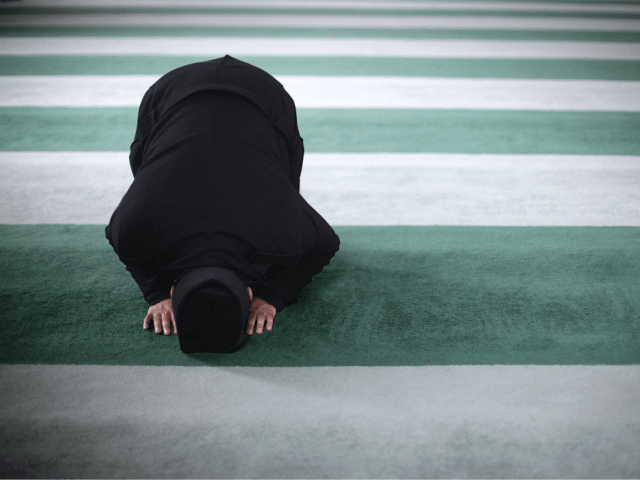The Saatchi Gallery has covered up two pieces of artwork after complaints from Muslims that they were “blasphemous” because they contained text from the Quran.
The pictures depict Islamic script including the Shahada, the Muslim declaration of faith, on top of nude images. The work, by an artist known as SKU, aimed to highlight the distinctions between Islamic extremism and the United States.
The paintings were part of an exhibition entitled Rainbow Scenes that finished on Friday, and offended Muslim visitors called for the pieces to be taken down, according to The Times.
Usama Hasan, head of Islamic Studies at the think tank Quilliam, claimed the pieces of art were “really dangerous,” alleging, “It’s The Satanic Verses all over again.”
The Satanic Verses, a novel written by Salman Rushdie which was critical of Islam, resulted in the Ayatollah of Iran issuing a fatwa (religious order) against Rushdie calling for his death. Rushdie spent years in hiding with police protection following the incident.
Fear about reprisals for so-called blasphemy against Islam in the West has led to multiple publications and media outlets to self-censor. This has come particularly in the wake of incidents such as the Charlie Hebdo massacre in which journalists were gunned down in France for publishing a cartoon of the Muslim prophet Muhammed.
Instances of self-censorship include The Times article that originally published this story, which has opted not to depict the artwork but rather has shown it only covered in cloth as it appeared in the gallery.
Noted author and sociologist Frank Furedi said he was “disappointed” by the decision to censor the artwork, calling it “a very dangerous [move] against artistic freedom.”
The Saatchi Gallery agreed to cover the work when the artist requested it, with a spokesman telling The Times, “It seemed a respectful solution that enables a debate about freedom of expression versus the perceived right not to be offended.”
The gallery has previously put works such as ‘Piss Christ’ — a crucifix submerged in urine — on proud display, flatly rejecting objections from Christians.
Other institutions have been criticised for covering up art. For example, the National Trust was criticised in November 2018 for covering up portraits and statues depicting men in order to promote female representation, while the Manchester Art Gallery also faced objections in February 2018 when it removed a famous Victorian painting featuring nude nymphs to “prompt conversation” about the male gaze in the era of #MeToo.

COMMENTS
Please let us know if you're having issues with commenting.